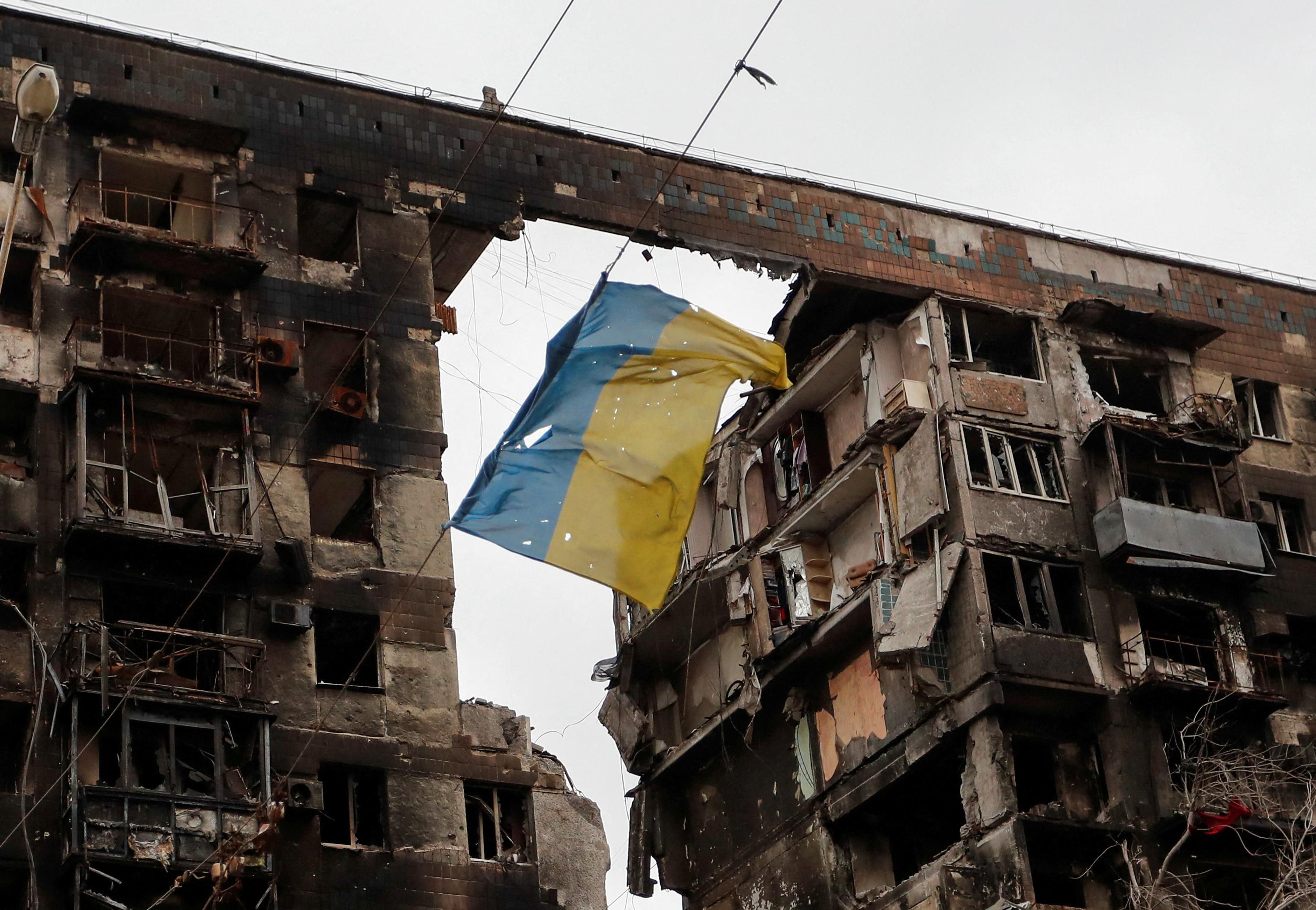Mariupol's last men standing
As President Volodymyr Zelensky predicted, Ukraine’s remaining fighters in Mariupol ignored Moscow’s deadline to surrender on Sunday. Zelensky has warned that he'll call off peace talks if Russia carries out threats to kill these defenders. After a seven-week siege, Russia is close to capturing the strategic southeastern port city. This would help form a land bridge from mainland Russia to Crimea and boost Russia’s efforts to gain control of eastern Ukraine. The Kremlin recently decided to concentrate on the Donbas in the second phase of its invasion. But Russia continued to also strike the capital, Kyiv, over the weekend and hit Lviv in western Ukraine with missiles on Monday. Is this a response to Friday’s sinking of the Moskva, the flagship of Russia's Black Sea fleet? The EU, meanwhile, is preparing its next round of sanctions, and Zelensky’s economic adviser estimates that Ukraine will need at least $1 trillion for its economy to recover from the war with Russia. Where will it get the money? Keep reading ...
Everyone wants a piece of the IMF
On Monday, the World Bank and the International Monetary Fund kick off their annual spring meetings in Washington, DC, with a focus on the global economic fallout of the war in Ukraine. Ukrainian officials have asked the IMF and G7 countries for $50 billion in immediate financial assistance for the country's war-battered economy. The IMF, for its part, has set up a special account for its members to contribute to helping Ukraine, but IMF chief Kristalina Georgieva's concerns extend far beyond Ukraine itself. The war has thrown a wrench into global post-pandemic recovery, exacerbating pre-existing problems like inflation, supply chain woes, and sky-high debt in the developing world. Sri Lanka has already defaulted, and other nations deep in the red — Egypt, Pakistan, Tunisia — could be next if they don't cut a deal with the IMF to restructure what they owe. Russia is also on the brink of default, but we’re guessing that Moscow won’t ask for an IMF lifeline anytime soon.
Shanghai’s turning point?
China's most populous city hopes to stop the spread of COVID-19 outside of quarantined areas by Wednesday so it can further ease lockdown restrictions that have been in place for more than two weeks. Ending community-level transmission is normally the turning point for Chinese cities to start returning to normal, as Shenzhen did last month. But the stakes are higher in Shanghai, where many of its 26 million citizens have turned to social media to express their frustration over lack of food, separated families, and dismal conditions at quarantine facilities in a rare public rebuke of Xi Jinping's zero-COVID policy. What's more, the lockdown could wipe out up to 3% of China's GDP in April, making the policy increasingly harder to keep in place without serious economic pain. Still, until China develops its own mRNA vaccines and treatments that are effective against new variants, zero-COVID will remain the only game in town.More For You
Somewhere in the Donbas region, Ukrainian soldier Artem Bondarenko says he hasn’t slept through the night in months as he defends Eastern Ukraine.
Most Popular
In this Quick Take, Ian Bremmer warns that US military strikes on Iran are “looking increasingly imminent” as diplomacy appears to stall.
